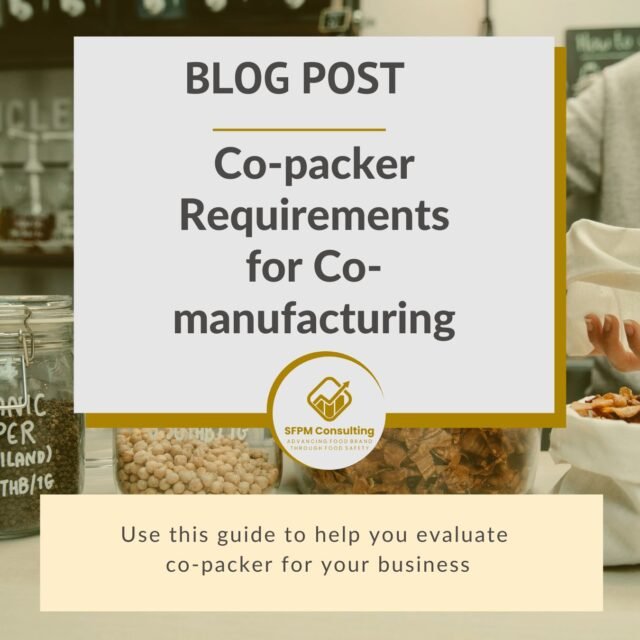[vc_row][vc_column][vc_video link=”https://youtube.com/embed/KMVdrKd6teM” css=””][vc_column_text]When it comes to producing and packaging food products, many businesses rely on co-packers to handle the process. Co-packers are specialized companies that provide manufacturing and packaging services for other companies. This partnership allows businesses to focus on their core competencies while ensuring that their products are produced and packaged efficiently and safely.
Food Safety Requirements
Food safety is of utmost importance when it comes to co-packing. As a business owner, it is crucial to ensure that your co-packer meets the necessary food safety requirements. Here are some key requirements to consider:
1. Certifications
Check if your co-packer has the necessary certifications, such as Good Manufacturing Practices (GMP), Hazard Analysis and Critical Control Points (HACCP), and Safe Quality Food (SQF). These certifications demonstrate that the co-packer follows strict guidelines and procedures to maintain food safety.
2. Quality Control
Ensure that your co-packer has a robust quality control system in place. This includes regular testing of raw materials, monitoring of production processes, and inspection of finished products. A strong quality control system helps identify and address any potential issues before they reach the market.
3. Traceability
Traceability is crucial in the food industry. Make sure your co-packer has systems in place to track and trace ingredients and finished products throughout the production and packaging process. This allows for quick and efficient recalls, if necessary, and helps maintain transparency and accountability.
4. Allergen Management
If your product contains allergens, ensure that your co-packer has proper allergen management protocols in place. This includes segregating allergens, implementing thorough cleaning procedures, and properly labeling products to inform consumers about potential allergens.
Co-manufacturing Requirements
In addition to food safety, there are several other requirements to consider when partnering with a co-packer for co-manufacturing. Here are some important factors to keep in mind:
1. Capacity and Capabilities
Assess your co-packer’s capacity and capabilities to ensure they can meet your production needs. Consider factors such as production volume, equipment capabilities, and the ability to scale up or down based on demand. It’s important to find a co-packer that aligns with your business goals and can accommodate your growth plans.
2. Product Compatibility
Make sure your co-packer has experience and expertise in handling products similar to yours. This includes understanding the specific requirements of your product, such as temperature control, packaging materials, and shelf-life considerations. A co-packer with relevant experience will be better equipped to produce and package your product effectively.
3. Confidentiality and Intellectual Property
Protecting your intellectual property is essential when working with a co-packer. Ensure that your co-packer has proper confidentiality agreements in place to safeguard your recipes, formulations, and any other proprietary information. This will help maintain the uniqueness and integrity of your product.
4. Communication and Collaboration
Effective communication and collaboration are key to a successful partnership with a co-packer. Ensure that there are clear channels of communication and that your co-packer is responsive and accessible. Regular meetings and updates will help ensure that both parties are aligned and working towards the same goals.
Partnering with a co-packer can be a game-changer for your business, allowing you to focus on marketing, sales, and growing your brand. However, it’s crucial to carefully evaluate potential co-packers to ensure they meet your food safety requirements and have the necessary capabilities for co-manufacturing.
By choosing the right co-packer, you can streamline your production process and deliver high-quality products to your customers.
Are You Confident that Your Comanufacturer meets your food safety requirements?
In the world of food safety, I often say that I cannot determine your facility’s compliance until I see the facility, and program and work with the team. Despite how much I wanted to prove myself wrong, I often see facilities that think they have the right programs but they don’t.
That being said, we are hoping that your co-manufacturer does what they promise. One way of determining your co-manufacturer meets your food safety requirements is through a second-party audit, where you hire qualified personnel to inspect their facility to determine if they meet the expectations or review their third-party audit reports.
Need some guidance for your co-manufacturer selections? Download our co-manufacturer selection guide here
Click Here to Download[/vc_column_text][/vc_column][/vc_row][vc_row][vc_column][/vc_column][/vc_row]

